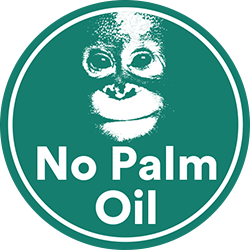By Ollie James, corporate sustainability expert and business development director at Bristol marketing communications agency Proctor + Stevenson
If youâre looking for something more confusing to solve than a Rubikâs cube, just look at the kerfuffle surrounding the recent Christmas advert by UK frozen foods supermarket Iceland. 
The tear-jerking advert shows a baby orangutan telling a little girl how his home has been destroyed by humans harvesting palm oil. It ends with a dedication to the â25 orangutans we lose every dayâ and a message declaring that all palm oil will be removed from Icelandâs own-brand foods.
Despite the advert being banned for being too political, Iceland have prompted a huge amount of media coverage over the past week along with outrage on palm oilâs damaging effects.
But is the situation really that straightforward?
From palm oilâs damaging effects on wildlife and forests, to its cheap versatility and economic benefits; hundreds of conflicting articles swarm the pages of Google trying to convince us that itâs either harmless, or downright environmentally corrupt.
So, what do we really know about palm oil? Now Iâm no professor, but Iâve been looking in detail at this issue for some time, so if youâre completely unaware of palm oilâs effects on the environment or even what the stuff actually is, here are the facts.
With 60m tonnes produced each year, palm oil is the most-produced vegetable oil in the world. Originally sourced from the African oil palm in Guinea, palm oil comes from the fruit of oil palm trees that grow in tropical rainforests.
Today, palm oil is grown throughout Africa, Asia, North America, and South America, with 85% of palm oil globally produced and exported from Indonesia and Malaysia.
With Palm Oil being a popular choice amongst manufacturers due its high-yield and versatility; the demand for it is unstoppable and ever increasing.
Now itâs no secret that in multiple industries when it comes to generating revenue, corporations will try their very best to âdrive efficiency gainsâ (cut corners) by using lower-quality, environmentally hazardous ingredients or even questionable methods of production. And in this case, palm oil production happens to be the big money maker.
From tasty baked goods, cosmetics, biofuel, cleaning products and even medicine, itâs safe to say that palm oil is in almost EVERYTHING that we use. Just walk into your nearest supermarket, including Iceland and see for yourself if you donât believe me.
Itâs become abundantly clear to me that palm oil is the most efficiently produced type of oil you can come across and by the sounds of it, pretty damn useful. But since the demand for palm oil has risen, so have the environmental and social consequences.
One swift look online and youâll discover that where the palm oil industry is concerned, many companies are practicing unsustainable farming methods to ensure production is possible and runs smoothly. In that regard, wild animals are either killed or caught and sold, children as young as 8-years-old are working in hazardous zones, women are only making $2.50 a day, and workers suffer injuries from working in dangerous and toxic conditions.
Indigenous tribes are threatened to sell their land for a pittance, with conflict often ending up in violence or death. It was also recorded (because itâs nice to throw in a statistic isnât it) that oil palm production accounted for around 57% of all deforestation in Malaysia and Borneo between 1973 and 2015.
The tragic list goes on. So, as a result of palm oilâs problematic ways of production, an increasing number of people are choosing to buy sustainable palm oil, or simply boycott it completely. I mean at-first-glance, seems fair? If only negative connotations are associated with palm oil then surely, itâs better to avoid it altogether, right?
Wrong. After attending Bristol Zoo Gardens recently for the conservation lecture on âSustainable Palm Oil: the challenges of communicating a controversial topicâ, it seems things are a lot more complex than that. While boycotting palm oil may seem the logical option, moving to alternatives may be even worse for the environment.
Why is boycotting palm oil a bad idea?
Host and speaker of the night Katie Major, conservation psychologist and campaigns manager at Bristol Zoological Society says: âA lot of people seem to think the solution is boycotting palm oil. If you’re going to the supermarket and you pick up a product and it says itâs got palm oil in, you just put it down, you just donât buy it; super easy. Unfortunately, it’s not that simple; boycotting palm oil is really not a good idea. Of all the land used for producing vegetable oil, palm oil only uses 6.6%, which is barely anything. And yet of all the output of vegetable oil, palm oil contributes 38.7%, which is a huge amount.
If you boycott palm oil, all that will happen is that companies using palm oil will just try and seek another vegetable oil. That means much more deforestation, much more land clearing, because they need much more land to get the same amount of vegetable oil than they would versus palm oil.â
If you boycott palm oil youâre punishing producers who produce palm oil sustainably and already have high standardsâ.
So, what is the solution?
Katie followed with âThe answer is certified sustainable palm oil.â
Back to the facts.
In an attempt to solve the issues the palm oil industry is causing, the organisation Roundtable for Sustainable Palm Oil (RSPO) was founded in 2004. The RSPO is a non-profit organisation that brings palm oil producers, palm oil buyers and NGOs together to discuss solutions for the environmental and human rights problems related to palm oil production. Together they have created the RSPO certificate that indicates a product is made with sustainable palm oil.
According to the RSPO, almost 12 million tons (thatâs 21%) of the global supply of palm oil is now certified as responsible and sustainable. According to SCS Global Services, a certification and auditing firm, several factors are behind the growth of sustainably sourced palm oil, including increased consumer demand and government regulations.
Earlier this spring, for example, the EU suggested a ban on the imports of palm oil for biofuel. In addition, more food companies are committing to ending deforestation within their supply chains, which helps drive up demand for RSPO-certified palm oil.
But what really is sustainable palm oil and can we trust it?
Katie says: âSo there are four types of certification for sustainable palm oil. The first one is âIdentity Preservedâ sustainable palm oil. This is the goal, this is the top, this is what every company wants in their product. It means that, if you go into supermarket, you pick up a pack of biscuits and it has palm oil in it, you can trace that palm oil all the way back to the plantation that it was produced in.
The second one is âSegregatedâ which is pretty much the same as Identity Preserved, but it doesnât have that transparency, which means it unfortunately canât be traced all the way back to the plantation. Itâs 100% sustainable, but what they do is mix all thesustainable palm oil from different plantations together.
The third one is âMass Balanceâ which means that palm oil in your biscuits might be sustainable, it might not be. And the reason is, is that when the palm fruits go to the mill, the mill will accept unsustainable and sustainable and they’ll mix it all together.
And the last one is âBook and Claimâ which means that, if youâre a company and you want to be supporting sustainable palm oil but unfortunately can’t source it for whatever reason, what you do is you buy palm oil (sustainable or not) then you give money to farmers on the ground who are producing sustainable palm oil to make sure you are supporting the production of sustainable palm oil.â
While this seems like a very positive development and possible solution to the
problem, for me, itâs hard to be completely convinced.
In reality, the RSPO certificate and the label of âsustainable palm oilâ can feel a tiny
bit woolly. Many big producers of âsustainableâ palm oil canât indicate where all their
palm oil is coming from and companies could potentially cheat the system to get
around this, making it a game of Russian roulette on whether its sustainable or not.
OKâŚso whatâs the actual solution?
The analysis from the International Union for the Conservation of Nature says âIf we
ban or boycott palm oil, other, more land-hungry oils will likely take its place. Palm oil
is here to stay and we urgently need concerted action to make palm oil production
more sustainable, ensuring that governments, producers and the supply chain honour
their sustainability commitments.â
Which leads me nicely back to the reason for Bristol Zooâs campaign.
Bristol Zoological Society has recently launched a sustainable palm oil project in an
effort to promote the use of sustainable palm oil.
Visitors to Bristol Zoo Gardens are being asked to join its new campaign to thank UK
supermarkets which use sustainable palm oil in their own-brand products. They are
also being asked to send âthank youâ emails to three major chains â M&S, Waitrose
and Co-op, that use sustainable palm oil, and encourage them to label their
sustainable own-brand products.
Katie says: âWe are committed to promoting a world where palm oil is 100 per cent
sustainably produced. We want to keep focusing on labeling because we think that all
palm oil thatâs sustainable should be clearly labelled, and as consumers, we should be
able to go into a shop and buy a product that contains sustainable palm oil.â
Overall, if I had to apply an analogy here, I would look at this like cars and pollution â
the answer wasnât to scrap all cars completely. It was to find a more environmentally
sound way of operating them which is now through the use of electric and hybrid
vehicles.
Bristol Zoo believe in educating people on the importance choosing sustainable palm
oil. Boycotting it entirely shouldnât be the knee-jerk reaction here because itâs simply
not the answer and ads like the one promoted by Greenpeace and Iceland are really
not helpful.
For more information on Bristol Zoological Societyâs campaign go to
http://www.supportingspo.org/ and remember to support sustainable palm oil!
Sources;
https://www.bristolzoo.org.uk/save-wildlife/conservation-and-research/palm-oilproject
https://www.theguardian.com/environment/2018/jun/26/palm-oil-disastrous-forwildlife-
but-here-to-stay-experts-warn
https://www.triplepundit.com/2017/06/rspo-achieves-gains-sustainable-palm-oilproduction/
https://medium.com/carbongrid/the-dirty-truth-about-palm-oil-d861071f33dc
https://thegreenvegans.com/why-palm-oil-is-bad-but-boycotting-it-even-worse/
https://inews.co.uk/news/environment/what-is-palm-oil-why-so-bad/
Â
Â





























